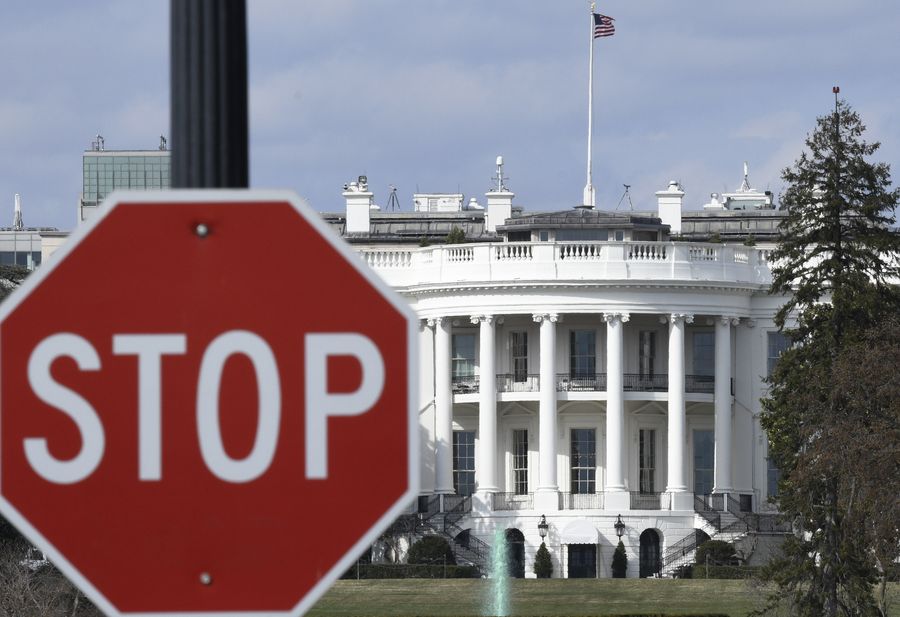
Photo taken on March 15, 2019 shows the White House in Washington D.C., the United States. (Xinhua/Liu Jie)
With dark intentions in mind, those zero-sum-minded U.S. politicians like Pompeo and Pelosi refuse to accept other countries' rapid development, and therefore try to defame others' success as a threat.
BEIJING, Feb. 21 (Xinhua) -- While many around the world are extending a helping hand to China in the fight against the novel coronavirus epidemic, some U.S. politicians once again are hyping up their same old talk of the so-called China threat.
Attending the Munich Security Conference, which wrapped up on Sunday in Germany, U.S. Secretary of State Mike Pompeo, Secretary of Defense Mark Esper and U.S. House Speaker Nancy Pelosi seemed to be trying to turn the gathering into a China-bashing campaign.
The Washington trio touted that the West is winning over what he called China's desire for "empire," urged the global community to "wake up to the challenges presented by China," and repeated their baseless accusations against Chinese tech giant Huawei.

A woman listens to a debate at Huawei Cyber Security Transparency Centre in Brussels, Belgium, Jan. 30, 2020. (Xinhua/Zhang Cheng)
Facts speak louder than words. China's warships and fighter jets have never come close to the United States, while Washington has repeatedly flexed its military muscles on China's doorstep, endangering regional security. It is crystal clear who the troublemaker is.
"All these accusations against China are lies, not based on facts," Chinese State Councilor and Foreign Minister Wang Yi said during the conference.
With dark intentions in mind, those zero-sum-minded U.S. politicians like Pompeo and Pelosi refuse to accept other countries' rapid development, and therefore try to defame others' success as a threat.
In Munich, when selling her story about China seeking digital autocracy through Huawei, Pelosi was refuted by Fu Ying, a senior Chinese diplomat in the audience, who asked her, "Do you really think the democratic system is so fragile it could be threatened by this single high tech company of Huawei?"

U.S. House Speaker Nancy Pelosi (R) speaks during a press conference in Washington D.C., the United States, on Jan. 15, 2020. (Photo by Ting Shen/Xinhua)
Pelosi can fool nobody. Despite Washington's lobbying, warnings and threats, European countries, such as Britain and Germany, have made their own decisions by pledging to create a business environment of fair competition for all companies, including Huawei.
China has always sought to promote world peace and safeguard world order. As China seeks to build a community with a shared future for mankind, its development provides abundant opportunities for countries around the world.
In an era of globalization, a healthy relationship between China and the United States serves the interests of not only both countries, but also the world as a whole.
Those hawkish politicians should drop their zero-sum mentality, and embrace open-minded cooperation so that countries around the world can jointly meet common challenges and make the world a better place. ■



